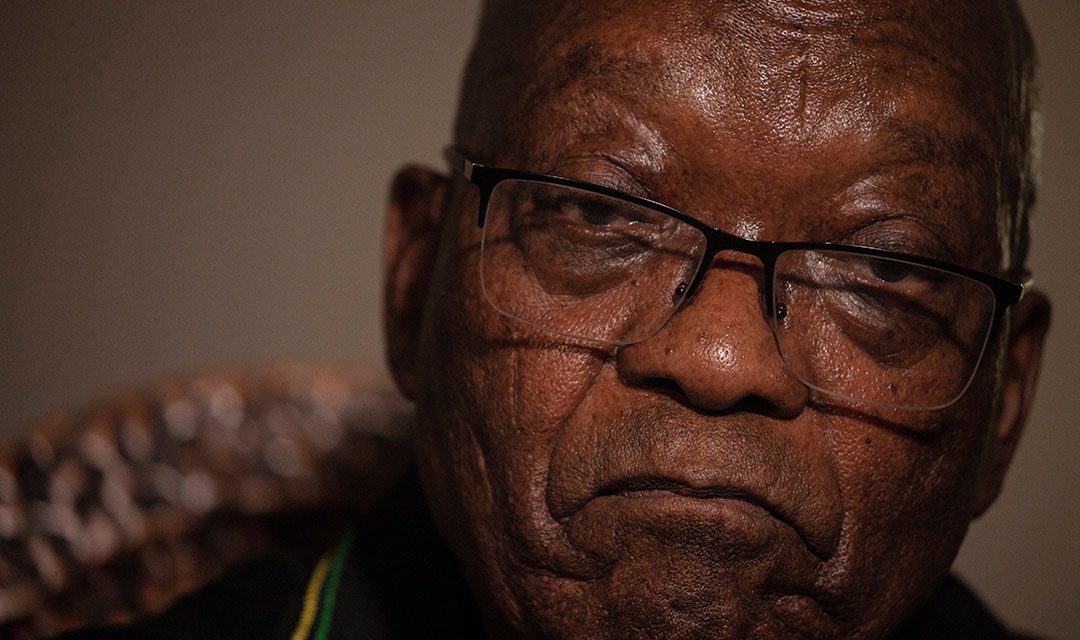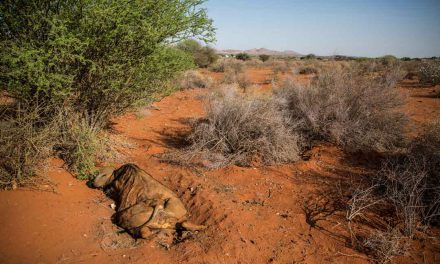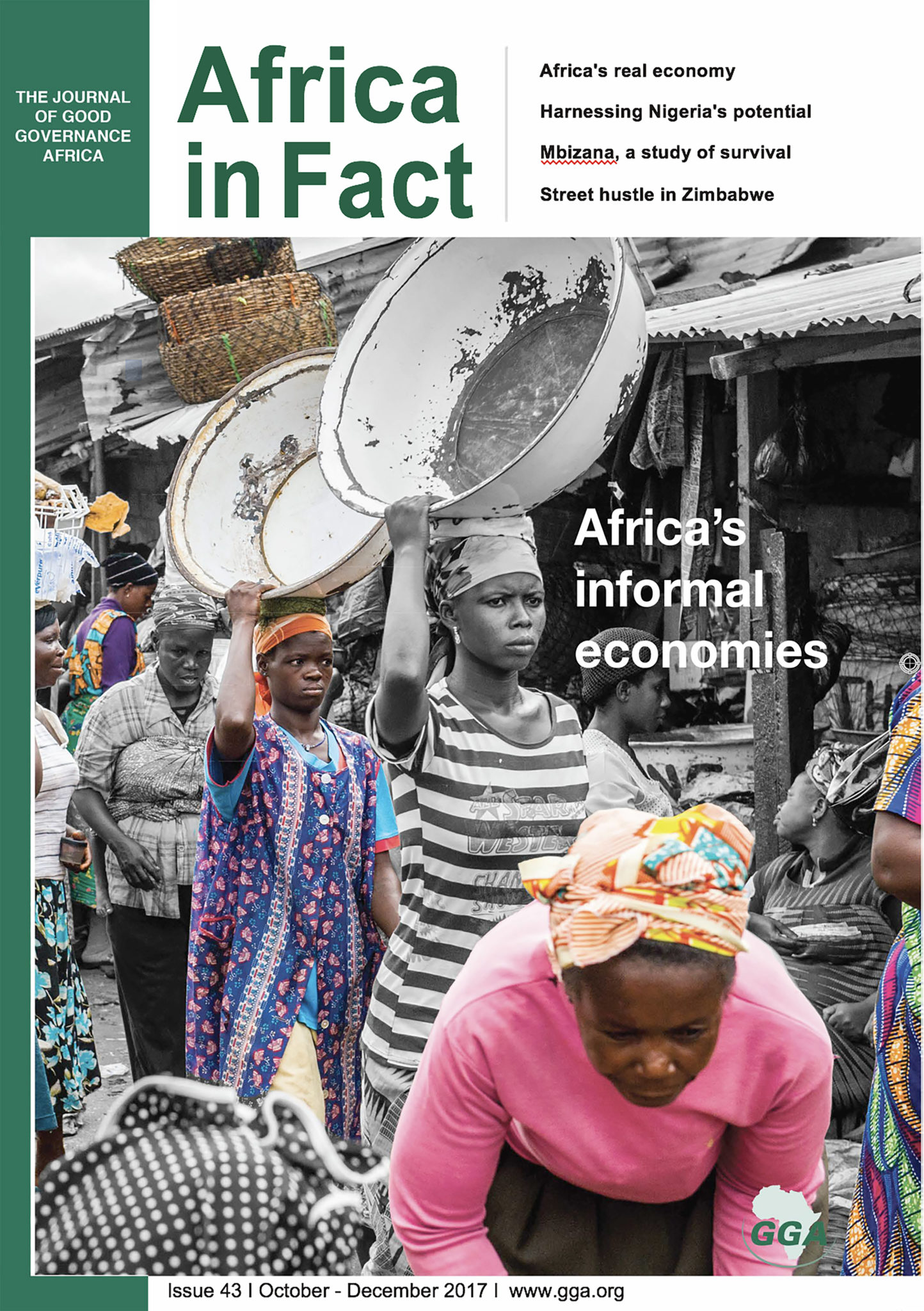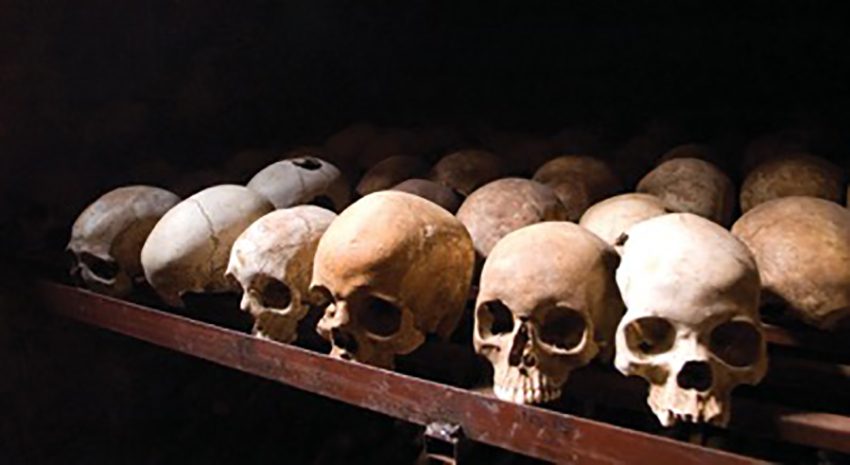South Africa: inclusive versus exclusive politics
Jacob Zuma’s narrow Zulu nationalism stands in the way of the development of an inclusive South African identity
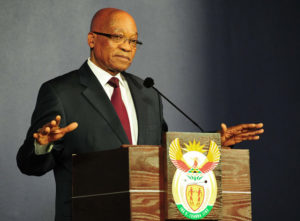
South African President Jacob Zuma © Wikimedia Commons
Most African countries were flung together by former colonial powers out of diverse ethnic, religious and regional communities, making them among the most diverse nations on earth. The colonial powers exploited these differences to play communities against each other and so reinforce their control over subject peoples. In so doing they prevented these peoples from presenting a united front against their colonial rulers. Sadly, in the post-colonial period, many African leaders and governments have sought support from only their own ethnic communities, regions or religious groups—further entrenching divisions inherited from the colonial past. Apparently South Africa’s current president, Jacob Zuma, is no different. After his return from exile Zuma, an isiZulu speaker, built his support base in the largest branch of the African National Congress (ANC), the KwaZulu-Natal branch. When he was fired in 2005 as deputy president by former South A f r i c a n President Thabo Mbeki for alleged corruption, he wooed Zulu speakers to secure support for his reinstatement. In 2007, at the party’s Polokwane conference, he used his Zulu background to win the ANC presidency. He did so again in Mangaung, in 2012, in his bid for the country’s presidency. At Polokwane Zuma portrayed opposition to his bid for power as an “anti-Zulu” conspiracy and cast Mbeki as a member of an educated elite waging a “war” against African traditions, institutions and styles of leadership. During that campaign some of his supporters wore “100% Zulu” T-shirts, adding to impressions that Zuma was pursuing the politics of ethnic patronage. Since then Zuma has claimed that critics of his poor policies and personal indiscretions are opposed to “Zulu” or African “traditions” or “culture”. In response, Mondli Makhanya, editor of the City Press, a Johannesburg weekly newspaper, warned ahead of the ANC’s 2012 Mangaung national elective conference that Zuma was unleashing the “spectre of tribalism, the demon that the anti-apartheid struggle successfully exorcised from the body politic”. Mangosuthu Buthelezi, the leader of the Inkatha Freedom Party, said an ethnic war could result if Zuma continued to claim an “antiZulu conspiracy” was against him. After the death of Zulu King Cetshwayo in 1883, politics in what became known as Zululand focused on maintaining the larger Zulu community as a recognisable unit, following repeated attempts by colonial and, later, apartheid governments to break it up through divide-and-rule tactics, as well as internal conflict. During most of the ANC’s 100-year history, two distinct strands of Zulu nationalism competed for dominance in the party, especially in KwaZulu-Natal: one conservative and closed off; the other, progressive and inclusive of other communities. Conservatives emphasise Zulu-ness as the defining feature of one’s identity, and want the Zulu group to be dominant in the broader African and South African community. Progressives see Zulu-ness as part of a layered African and South African identity, with the wider Zulu community an equal among others. Zuma’s election as ANC president in 2007, and his re-election in 2012, signified the triumph of the conservative wing of Zulu nationalism, and the retreat of the progressives. Many of Zuma’s appointments to key positions, both in government and his party, especially those in the security networks, have benefited individuals from KwaZulu-Natal. Critics warn of the danger of the “Zulufication” of the ANC. Anthony Butler of the University of Cape Town points to the “skewed composition of the cabinet, the KwaZulu-Natal-dominated ANC parliamentary list, the growing non-representatively of important directors-general and their deputies, and the composition of parastatal boards and managers” during Zuma’s presidency. These appointments, he argues, indicate “a big shift in the control of resources and power towards people of amaZulu descent”. Under Zuma’s predecessor, Mbeki, the ANC came close to capturing the state. This phenomenon deepened under Zuma, who has turned the ANC into a “partyarchy” dominated by entrenched leadership factions and networks within regional, ethnic, generational or even class groups. Now some ANC members are turning purely political differences into “ethnic” differences. At Mangaung some ANC members said that failing to support Zuma’s re-election as party leader would be a “betrayal” of “their” community, apparently meaning isiZulu-speakers. Since then others have called on the rank-and-file to support his continued incumbency solely on the basis that he is “one of us”, rather than on the merits of his performance as president. Zuma’s “Zulufication” of the ANC could indeed unleash “the demon of tribalism”, as the ANC’s first secretary general, Sol Plaatje, put it. Firstly, people from other groups will likely resent their exclusion and oppose government policies, decisions and actions, believing they are ethnicity- driven. This could paralyse the ANC and government, and further impact on the ruling party’s ability to deliver public services. Traditionally the ANC has sought to ensure a balanced representation of South Africa’s ethnic and cultural groups in its leadership. Zuma has eroded this tradition, drawing Mbeki to criticise the rise of tribalism under his successor’s government. “When a minister comes from a certain region, so will the officials in that department,” Mbeki said in 2014, calling it the “homeboy” phenomenon. In 2014 Mbeki noted that tribalism was “raising its head again” in South Africa. Ironically, however, Mbeki may have taken a similar approach during his own presidency. An isiXhosa-speaker by background, he was accused of surrounding himself with a group of key individuals from the Eastern Cape—the so-called “Xhosa-Nostra”. Zuma’s ethnic politics may shape the ANC’s future, with a national election looming in 2019. He is known to favour the appointment of Nkosazana Dlamini-Zuma, the current chairperson of the African Union and a former wife, as the next ANC president, to position her for election as the country’s next president. Political analyst Somadoda Fikeni says that KwaZulu-Natal ANC members who support her candidacy mainly because she is Zulu-speaking will fuel perceptions of tribalism. Cyril Ramaphosa, Zuma’s current deputy, is Tshivenda-speaking; he should, according to ANC tradition, succeed the president. The National Union of Mineworkers has also warned that attempts to push a candidate from KwaZulu-Natal to succeed Zuma will be seen as tribalism. Fikeni notes that the influence of tribalism does not solely apply to Zuma’s ANC. In South Africa it is a “societal challenge that manifests itself in different institutions”, as well as in the Afrikaner and English communities. Clearly the best way forward for South Africa is not the nationalism of any one group, whether Afrikaner, African or Zulu, but what Michael Ignatieff describes as “civic nationalism”. In “civic nationalism”, equal rights and shared democratic cultures, values and institutions are the glue that holds the country together, rather than any ethnic identity. A common South Africanness must be woven around the country’s constitution, democratic values, rules and institutions. Colonialism and apartheid bequeathed an ethnically diverse society to South Africa. Wise leadership will be needed to forge an inclusive society. The first requirement is that the rule of law should apply to everyone equally. Secondly, given our history, government’s main aim should be to lift everyone out of poverty, no matter their ethnicity, region or language. And thirdly, government appointments must balance the need to recognise individual merit, redress racial injustice, and be seen to be fair. Zuma’s narrow Zulu nationalism undermines efforts to establish a common South African identity. South Africa needs a national solidarity that cuts across ethnic, regional and political divides. Social justice must underpin governance, not the advantage of one group over another. Political parties and leaders that make themselves guilty of ethnic nationalism should not receive public funding. In Mauritius, political parties seeking public funding must show that they are ethnically representative in their structures and policies. South Africa would do well to adopt such a policy.
William Gumede is an associate professor at the School of Governance, University of the Witwatersrand, Johannesburg. His latest book is South Africa in BRICS: Salvation or Ruination (Tafelberg).

